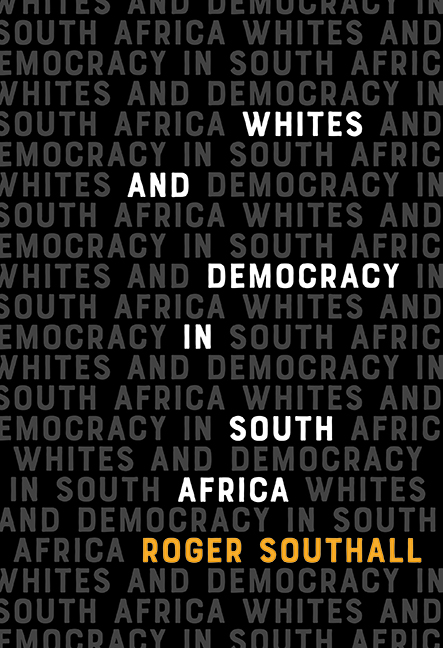6 - Disillusion and Dystopia
Published online by Cambridge University Press: 26 May 2022
Summary
More than two decades on from the arrival of democracy, there is much assertion of the increasing racialization of political debate in South Africa. ‘There is a rising cauldron of discontent, driven by race politics’, averred Mzukisi Qobo, a prominent commentator, in 2018. ‘Race reconciliation has lost its currency in our imagination.’ Often this is ascribed to the intemperate tone adopted by exchanges on social media, not least because the ANC's governance failures, notably during the Zuma years, have emboldened those who have always believed in the hopelessness of black rule in Africa. Yet at the root of all this, it is often argued, is the failure of the democratic transition to lead to a new society, one constructed around a major redistribution of economic power from white to black, and the restoration of dignity to black South Africans, the overwhelming majority of whom have remained on the margins of the economy.
In contrast, the IRR has argued cheerfully that the fabric of race relations has remained sound. Surveys conducted on its behalf by MarkData in 2015 and 2016 indicated that the majority of black Africans (60 per cent and 59 per cent, respectively) agreed that race relations had improved since 1994 and, interestingly, this was higher than for ‘All South Africans’ (54 per cent and 55 per cent). It also summarized the most salient differences between the outcomes of the 2016 survey with one conducted in 2001 (see Table 6.1),
Despite this relatively good news, the IRR conceded that the fabric of race relations was fraying. It, too, pointed to the damage done by hurtful and insulting comments posted on social media by white racists, citing particular instances which had inflamed sentiments in recent years. Yet the fundamental message it promoted was that the more the economy faltered and unemployment increased, the easier it would become for politicians to foment racial divisions for political or ideological gain.
What both these approaches share is the conviction that relations between white and black are strongly shaped by the performance of the economy. Although black radicals are demanding a major redistribution of power while the IRR has much greater faith in incremental economic growth, both recognize the potentially racially polarizing outcomes of the failure to improve the living conditions of the masses of black South Africans.
- Type
- Chapter
- Information
- Whites and Democracy in South Africa , pp. 119 - 137Publisher: Boydell & BrewerPrint publication year: 2022



